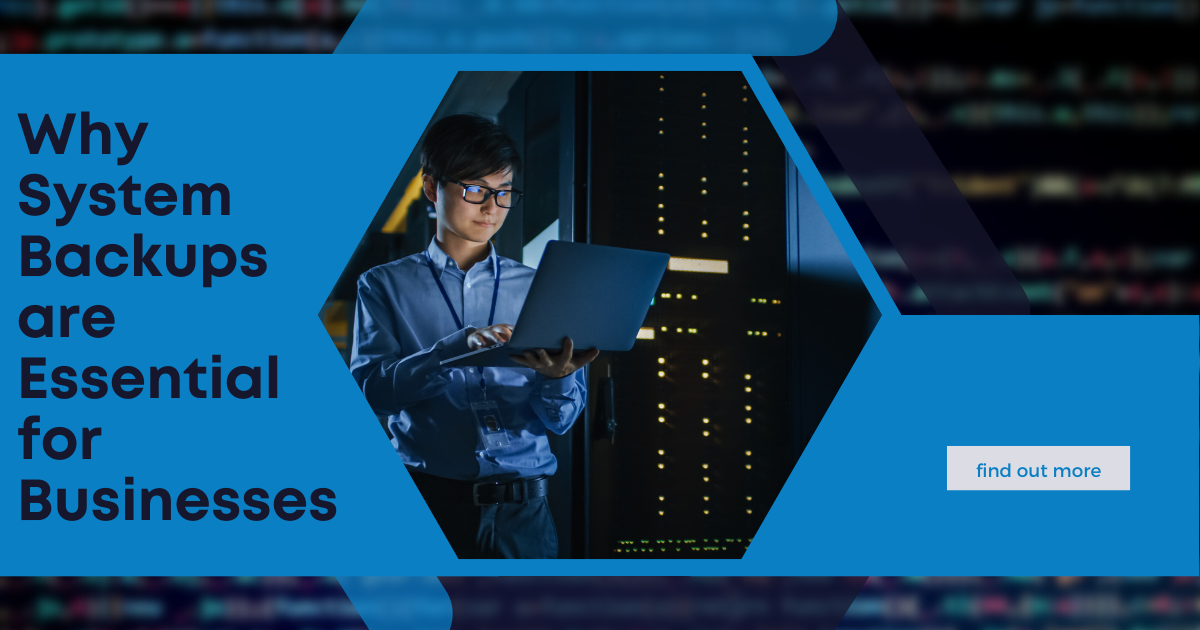The Benefits of System Backups
System backups provide numerous benefits to businesses. First and foremost, they help protect against data loss due to hardware failure or other disasters. For example, if your server crashes due to a power outage or virus attack, having a backup in place can save you time and money by allowing you to restore your data quickly and easily. Similarly, if your servers are hacked or compromised in some way, having recent backups can help you quickly restore your systems with minimal costly downtime.
System backups also provide peace of mind that your data is safe and secure even if something unexpected happens. Knowing that your data can be recovered quickly and easily in case of an emergency gives executives and IT staff alike the assurance that their business will remain operational no matter what happens.
How System Backups Work
A system backup creates an exact copy of all your company’s digital resources at a specific point in time. This includes databases, applications, documents, emails, and more. It is important to note that these backups should be kept off-site so that they can’t be destroyed in the same event that destroys the original data. For example, if a fire destroys your server room, an off-site backup will remain intact and accessible.
Backup Frequency
The frequency of system backups depends on how often your business’s data changes. If you have highly dynamic data—such as a customer relationship management (CRM) system—you may need to back up multiple times per day or even hourly. On the other hand, if you have relatively static data—such as payroll records or financial documents—you may only need to back up once per day. Make sure you assess how often your data changes and create a backup schedule accordingly.
How To Properly Backup Your Data
The most important step when it comes to system backups is ensuring that all necessary files and databases are included in the backup process. It’s also important to choose a reliable backup provider who understands the importance of security and privacy when storing customer data. Additionally, businesses should make sure they have multiple copies of their backups stored on-site as well as off-site to ensure maximum protection against any potential disaster scenario. Finally, businesses should regularly test their backups to ensure that they can be restored correctly when needed.
System Backup Types
The most common type of system backup is an incremental backup, which creates an exact copy of all new and modified files since the last backup occurred. This type of backup is efficient and cost-effective but can take longer when restoring large amounts of data since each version must be restored individually. Another option is a differential backup, which creates copies of all new or modified files since the last full backup was created instead of just since the last incremental backup was created; this type is faster but requires more storage space due to its larger size.
Backup Best Practice
The 3-2-1 rule is a backup strategy for disaster recovery, commonly used in the IT industry. The concept is simple: maintain three copies of your data, on two different types of storage, with at least one copy being stored off-site.
The idea is to protect yourself against potential disasters such as hardware failure, natural disasters, and malicious attacks by having an up-to-date backup that can be quickly recovered if needed. By storing multiple backups on different types of media (such as a hard drive, cloud storage, or an external drive), you mitigate the risks associated with relying on a single solution. Additionally, keeping one copy stored away from the main system ensures that a disaster can’t destroy all your data at once.
5 Key Take-Aways for Practicing the 3-2-1 Strategy
- Maintain three copies of your data, in two different formats and with one stored off-site.
- Ensure that automated backups are run regularly to ensure all changes are captured in the backup.
- Test your backups regularly to guarantee they can be recovered if needed.
- Utilize encryption and other security measures to protect your data from malicious attacks or unauthorized access.
- Use a cloud storage solution for convenient access to data from multiple locations or devices.
Backing up your company’s systems is essential for protecting against potential disasters or cyberattacks that could otherwise destroy valuable information stored on digital resources like servers or cloud storage systems. While there are several types of backups available depending on your needs, making sure that your backups occur regularly and remain off-site will help safeguard your business against any unforeseen forces beyond your control. Investing in robust system backups can give you peace of mind knowing that no matter what happens, you will always have access to critical company information needed for normal operations and success in today’s digital world.
Contact ERGOS today to discuss your backup strategy.

